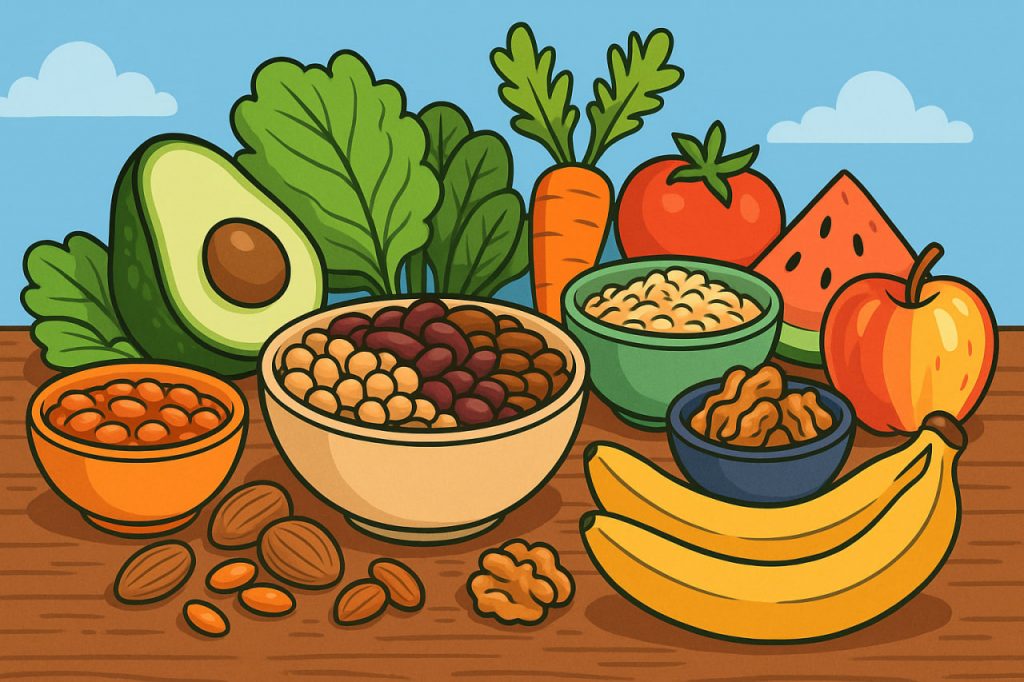A growing number of people are choosing to give up animal products, either for ethical, environmental, or health reasons. The question many ask is: can a fully plant-based diet be nutritionally balanced? Modern science shows that the answer is yes—if meals are properly planned and diverse.
Proteins Without Meat
Protein is often associated with animal products, but plants also provide it in abundance:
- Legumes such as beans, lentils, chickpeas, and peas.
- Soy products like tofu and tempeh.
- Whole grains including quinoa, oats, and brown rice.
- Nuts and seeds, which also contain healthy fats.
By combining different plant proteins, people can obtain all essential amino acids needed by the body.
Vitamins and Minerals
Certain nutrients require special attention in a plant-based diet:
- Vitamin B12 – not naturally present in plants; it must come from fortified foods or supplements.
- Iron – found in lentils, spinach, and pumpkin seeds; absorption improves when combined with vitamin C.
- Calcium – available in fortified plant milks, tofu, and leafy greens.
- Omega-3 fatty acids – supplied by chia seeds, flaxseeds, walnuts, and algae oils.
Benefits of Plant-Based Eating
- Lower risk of heart disease, type 2 diabetes, and certain cancers.
- Supports healthy weight management.
- Contains more fiber, antioxidants, and phytochemicals.
- Environmentally sustainable, reducing greenhouse gas emissions and resource use.
Challenges and Solutions
The main challenge is avoiding nutrient deficiencies. Solutions include:
- Eating a wide variety of foods daily.
- Using fortified foods (plant milks, cereals).
- Considering supplements for B12, D, and omega-3 if needed.
- Consulting a dietitian when transitioning to a fully vegan diet.
Conclusion
Yes, it is possible to maintain a balanced diet without animal products. With careful planning, plant-based diets provide all necessary nutrients while offering health and environmental benefits. The key is variety, awareness of critical nutrients, and sometimes supplementation to fill nutritional gaps.
Glossary
- Essential amino acids – building blocks of proteins that the body cannot produce on its own.
- Fortified foods – foods with added vitamins or minerals.
- Omega-3 fatty acids – healthy fats important for heart and brain function.
- Phytochemicals – natural compounds in plants with health benefits.
- Nutrient deficiency – lack of essential vitamins or minerals in the diet.


